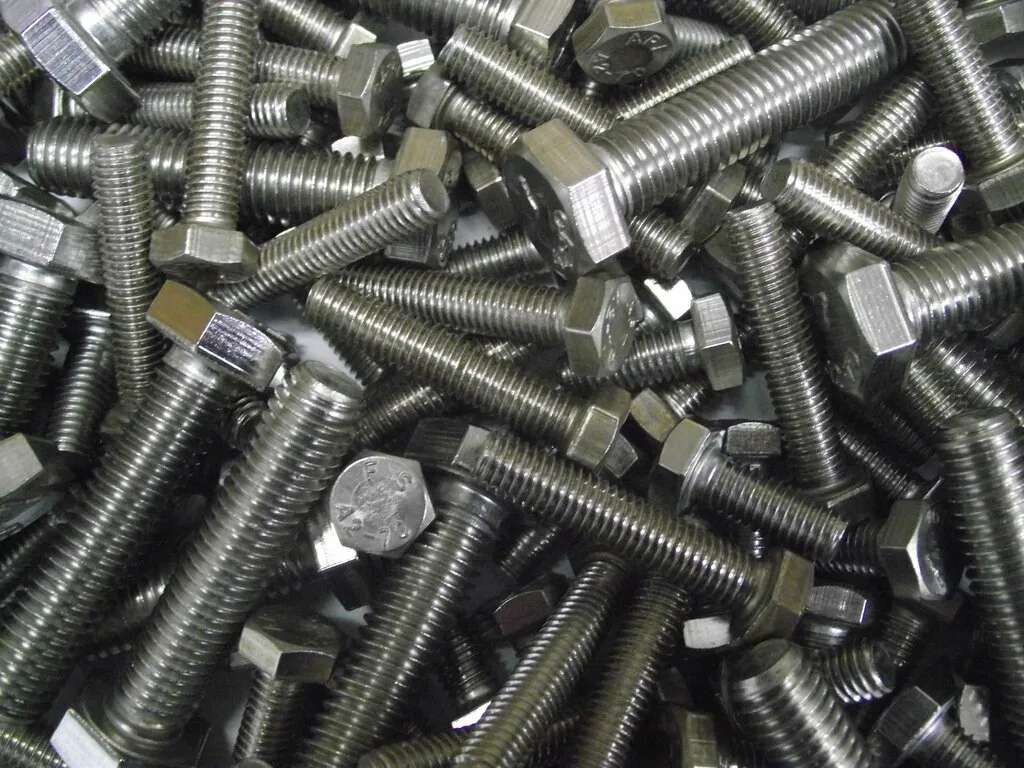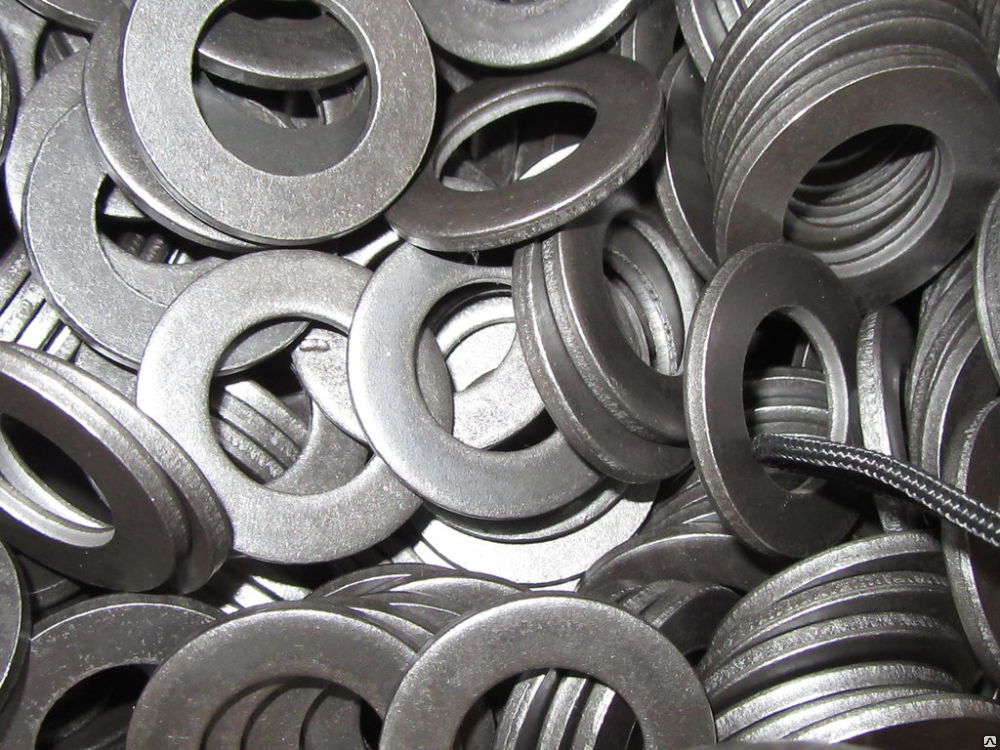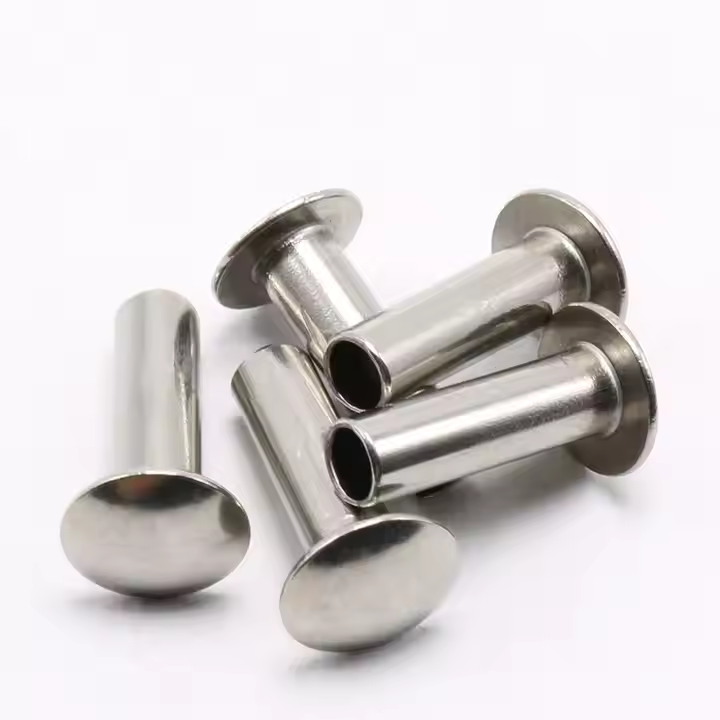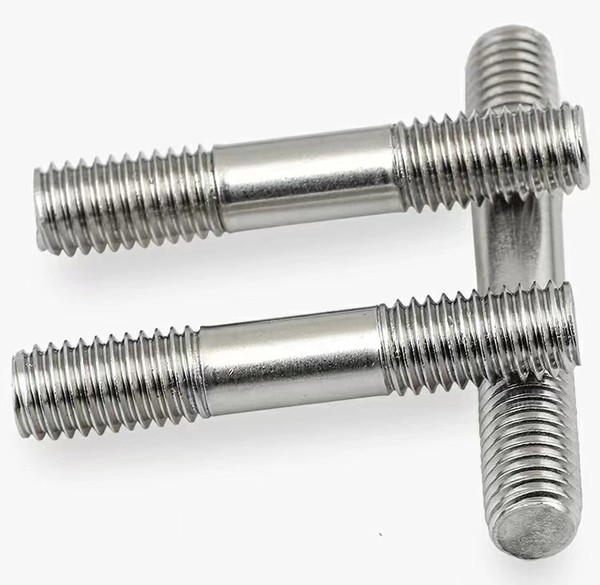Fasteners
Fasteners are mechanical components used to join or secure two or more objects together. They come in a variety of types, such as bolts, nuts, screws, washers, and U-bolts, and are made from materials like carbon steel, alloy steel, stainless steel, brass, and copper. The choice of material and grade of fastener depends on the specific requirements of strength, corrosion resistance, and the environment in which they will be used. For instance, carbon steel fasteners, like Grade 2, are commonly used for general-purpose applications, while stainless steel fasteners, such as A2-70 (304) and A4-70 (316), offer superior resistance to corrosion and are used in industries like marine, chemical, and food processing.Alloy steel fasteners, such as Grade 8, are designed for heavy-duty applications, providing high strength for demanding environments.
| Fastener Type | Material | Grades/Specifications |
|---|---|---|
| Bolts | Carbon Steel, Alloy Steel, Stainless Steel, Brass, etc. | Grade 2, Grade 5, Grade 8, A2-70 (304), A4-70 (316) |
| Nuts | Carbon Steel, Alloy Steel, Stainless Steel, Brass, etc. | Grade 2, Grade 5, Grade 8, A2-70 (304), A4-70 (316) |
| Screws | Carbon Steel, Alloy Steel, Stainless Steel, Brass, Copper | Grade 2, Grade 5, Grade 8, Stainless Steel (304/316) |
| Machine Screws | Carbon Steel, Stainless Steel, Brass | Grade 2, Grade 5, Grade 8, Stainless Steel (304/316) |
| Self-Tapping Screws | Steel, Stainless Steel, Brass | No. 2, No. 3, No. 4 (varied by material type) |
| Wood Screws | Carbon Steel, Brass, Stainless Steel | No specific grade but generally lower-grade steel |
| Socket Head Screws | Alloy Steel, Stainless Steel | Grade 8, Stainless Steel (304/316) |
| Lag Screws | Carbon Steel | Grade 5 |
| Washers | Steel, Stainless Steel, Brass, Aluminum | Flat washers, Spring washers, Lock washers |
| U-Bolts | Carbon Steel, Stainless Steel | Grade 5, Stainless Steel |
| Fastener Type | Grade | Material | Typical Applications |
|---|---|---|---|
| Carbon Steel Bolts | Grade 2 | Carbon Steel | General-purpose applications, low-strength requirements |
| Grade 5 | Medium Carbon Steel | Automotive, machinery, industrial applications | |
| Grade 8 | High Carbon Steel | High-stress applications, heavy-duty machinery | |
| Stainless Steel Bolts | A2-70 (304) | Stainless Steel (304) | Corrosion-resistant applications, food processing, marine environments |
| A4-70 (316) | Stainless Steel (316) | Marine environments, chemical processing | |
| Alloy Steel Bolts | Grade 8.8 | Alloy Steel | Heavy-duty machinery, structural applications |
| Grade 10.9 | Alloy Steel | High-strength, critical applications | |
| High Strength Bolts | HSFG (High Strength Friction Grip) | Steel (varies) | Structural connections, bridges, and steel frameworks |
| Hex Nuts | Grade 2 | Carbon Steel | General applications where strength is not critical |
| Grade 5 | Medium Carbon Steel | Automotive, industrial machinery | |
| Grade 8 | High Carbon Steel | Heavy machinery, high-stress connections | |
| Stainless Steel Nuts | A2-70 (304) | Stainless Steel (304) | Corrosion-resistant, food, marine, and chemical industries |
| A4-70 (316) | Stainless Steel (316) | Marine environments, harsh chemicals | |
| Machine Screws | Grade 2 | Carbon Steel | Light-duty applications, electronics, appliances |
| Grade 5 | Medium Carbon Steel | Industrial equipment, automotive | |
| Self-Tapping Screws | No. 2, No. 3, No. 4 | Steel or Stainless Steel | Woodworking, sheet metal, plastic, light-duty applications |
| Set Screws | Grade 8 | Alloy Steel or Stainless Steel | Securing components in motors, gears, and shafts |
| Lag Screws | Grade 5 | Carbon Steel | Wood and structural fastening |
| U-Bolts | Grade 5 | Carbon Steel or Stainless Steel | Pipe and structural support systems, automotive |
Nuts
A nut is a fastener with internal threads designed to pair with bolts or screws to secure parts together. Nuts are typically hexagonal or square and are made from materials like carbon steel, alloy steel, stainless steel, or brass. Common types include hex nuts, lock nuts (prevent loosening), wing nuts (hand-tightened), cap nuts (decorative and protective), coupling nuts (for joining bolts), and flange nuts (with a built-in washer). Nuts come in various grades (Grade 2, Grade 5, Grade 8) based on strength, and they conform to standards like ISO and ASTM. Stainless steel nuts are corrosion-resistant, used in harsh environments. Nuts are crucial for ensuring secure, reliable connections in mechanical and structural applications.

Bolts
A bolt is a fastener with external threads designed to be paired with a nut or inserted into a tapped hole to secure parts. Made from materials like carbon steel, alloy steel, stainless steel, or brass, bolts come in various grades (Grade 2, Grade 5, Grade 8) that indicate their strength. They are available in different types, such as hex bolts, carriage bolts, and anchor bolts, and are used in applications like construction, automotive, and machinery. The size of a bolt is defined by its diameter, length, and thread pitch. Bolts provide strong, reliable connections in a wide range of industries.

Washers
A washer is a flat disc used with a fastener to distribute load, prevent surface damage, and reduce friction. Made from materials like steel, stainless steel, and brass, common types include flat washers, spring washers (for tension), and lock washers (to prevent loosening). Washers are essential for securing fasteners and improving the durability and stability of connections.

Screw
A screw is a type of fastener with a threaded shaft designed to be driven into materials, often to hold objects together. Screws come in various types, including machine screws (for precise, internal threading), wood screws (designed for wood), and self-tapping screws (which create their own threads in materials like metal or plastic). They are made from materials like steel, stainless steel, brass, and plastic. Screws are categorized by their thread type, size, length, and head shape (such as flat, Phillips, or hex). They are commonly used in construction, electronics, automotive, and furniture assembly to create strong, reliable connections.

Rivet
A rivet is a permanent mechanical fastener used to join two or more materials together. It consists of a cylindrical shaft with a head on one end. When installed, the shaft is deformed (typically by hammering or using a rivet gun) to form a second head, securing the materials in place. Rivets are commonly made from materials like aluminum, steel, copper, or brass. Rivets are widely used in industries such as aerospace, construction, and manufacturing, especially for applications where welding or screws are not feasible. There are various types of rivets, including blind rivets (used when access to only one side of the material is available) and solid rivets (which require access to both sides). Rivets are known for their durability, strength, and resistance to vibrations.

Stud bolts
Stud bolts are long, threaded rods used to fasten two components together, typically in high-strength applications. Unlike bolts, stud bolts have threads on both ends and are not designed with a head. One end is screwed into a tapped hole, while a nut is applied to the other end to secure the parts. Stud bolts are commonly used in industries like construction, oil & gas, marine, and chemical processing for applications that require high strength and reliability. They are often made from carbon steel, alloy steel, or stainless steel, and their size, thread type, and length vary depending on the specific requirements of the application.



